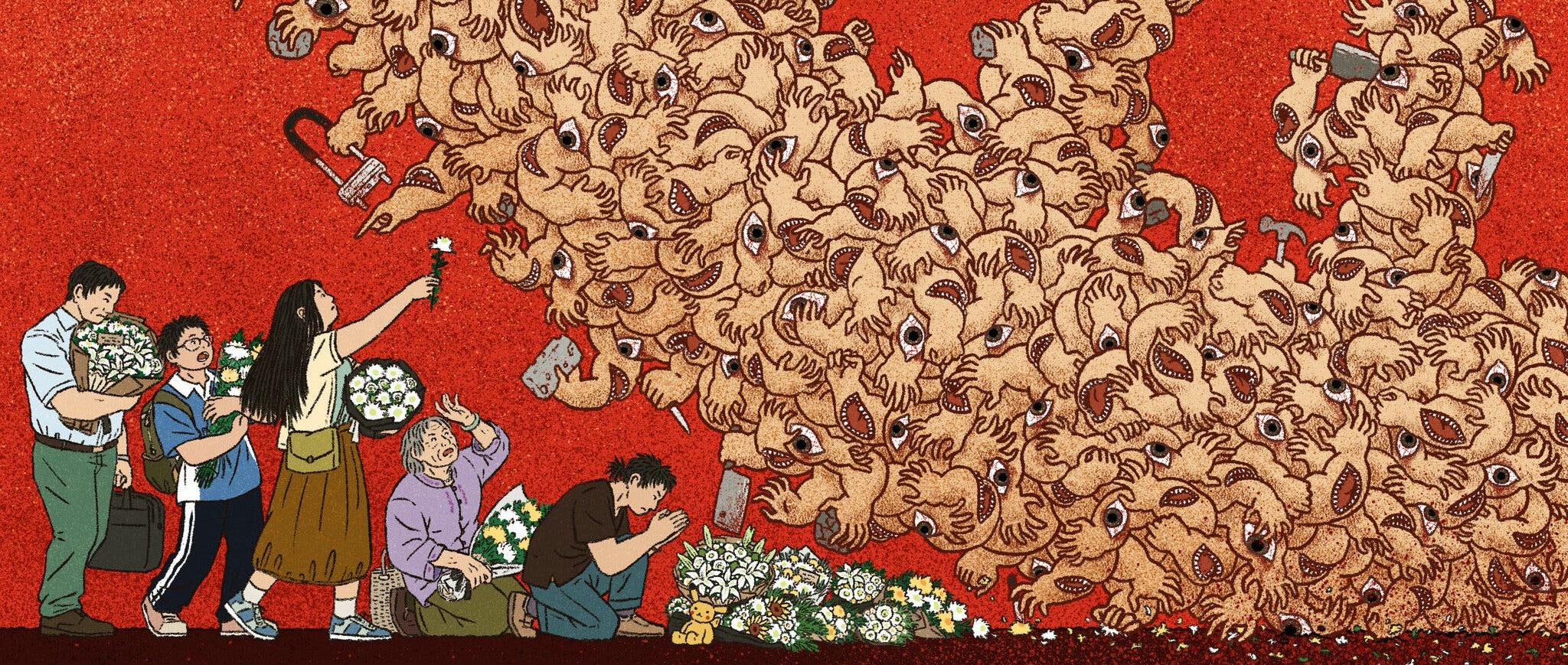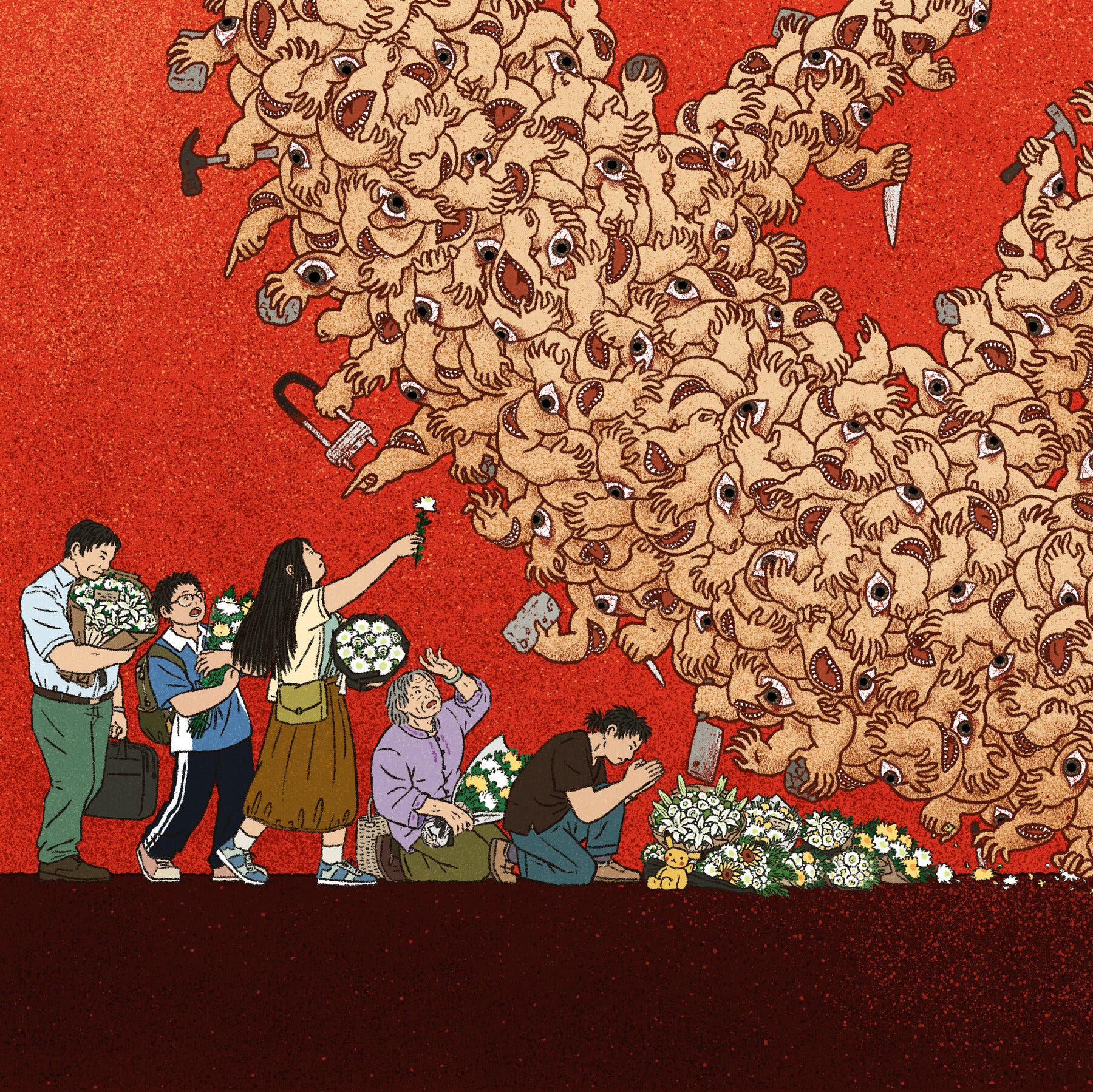
The Dispute Over Uninhabitable Rocks: A Microcosm of Sino-Japanese Relations
不杀日。难解心头之恨.
这种人在日本叫做极右翼法西斯,在德国叫做纳粹,在中国叫做 ‘爱国者’。
In 1982 the United Nations Convention on the Law of the Sea (UNCLOS) established the concept of the Exclusive Economic Zone (EEZ) which entitles countries to natural resources up to 200 nautical miles from their coast. However, this framework quickly gave rise to disputes, particularly territorial conflict between China, Taiwan, and Japan over the previously insignificant Diaoyu/Senkaku Islands. Rooted in historical claims, regional tensions, and post-World War II treaties, this issue has become one of the most volatile in the region. The Chinese government masquerades a dispute over rights to natural resources and politics as a loss of national pride. As a result of this conflict, China has been promoting nationalism, inciting riots and protests, and facing a continued deterioration of economic exchange with Japan and the international world.
Consequently, the Chinese government depicts the Japanese as the enemy, using this recurring propaganda tactic to shape nationalist discourse. The Chinese Government uses propaganda to artificially incite extreme nationalism and xenophobia. China’s contemporary view of Japan in the modern day resonates with that of WWII. The dispute over the Diaoyu/Senkaku islands is mainly based on natural resources and strategic military importance. Molding nationalism and instilling an 'us-versus-them' dichotomy is a way of distracting the populous from domestic issues. The Chinese population has a deep hatred and distrust of foreigners because of the rhetoric put out by its communist government, due to the education system in China instilling hate at a very young age. This results in xenophobia becoming more widely accepted in society.
For example, this hatred culminated into terroristic stabbing attacks directed at foreigners, especially the Japanese. Five premeditated attacks occurred over the span of three months, all directed at foreigners. Four of these were directed at children, and two of the attacks occurred in June 2024. The first attack was towards four American English teachers, and another towards Japanese children. Nectar Gan and Junko Ogura from CNN inform, “[A] 10-year-old boy was stabbed by a man … about 200 meters (650 feet) from the gates of the Japanese school in the southern city of Shenzhen.” Another attack was perpetrated on a school bus full of children studying at another Japanese school that was set up by the government and exclusive to foreigners in China. The perpetrator was stopped by a Chinese bus attendant who died from her injuries. A Chinese spokesperson for the ministry was questioned on this issue and responded that it was an “isolated incident,” despite multiple attacks happening in the same month. This form of attack is called “revenge against society,” typically carried out by disillusioned individuals in China. These often target Chinese children to inflict maximum harm on what is considered the most important part of Chinese society: families and future generations. From 2004 to 2017, 138 mass stabbing attacks occurred around the world, with 44.9% occurring in China. However, attacks specifically targeting foreigners represent an unprecedented escalation, mirroring events previously seen in history such as the Boxer Rebellion.
Moreover, anti-Japanese riots and protests erupted across China at the height of the Diaoyu/Senkaku Islands dispute, and while protests are usually quickly suppressed, these demonstrations received implicit approval at the time. During these protests, Chinese-owned Japanese restaurants and Japanese-made cars were subject to vandalism. In response to the protests, the Chinese government attempted to reassure the populace through state media to de-escalate the situation. The issue was growing out of control and led some to question the government’s strength. Japanese restaurants and Japanese-made cars were vandalized during these protests, but at the end of the day, the owners of these smashed properties were all Chinese, and the Chinese people were largely victims of themselves.
For example, a Chinese resident of Xi’an was attacked and permanently paralyzed for driving a Toyota. Manya Koetse from What’s on Weibo, a newsletter that covers social trends in China, reports, “It has been four years since violent anti-Japanese demonstrations erupted across China. Still hospitalized for his injuries … for driving a Japanese car.” Unfortunately, something minor such as the brand of car driven, or the brand of phone used by an individual in China is seen as reflective of patriotism. This phenomenon is called the "patriotic IQ tax," where opting for an iPhone over a Huawei may be viewed as unpatriotic. Although both products are priced similarly, Chinese brands are often criticized for intellectual property theft and lower quality. As the result of deeply ingrained prejudice ideas, state-backed companies are representative of national pride rather than practicality.
Another effect of this dispute would be a decline in Japanese foreign investment, resulting in job losses for local Chinese workers. Chiang Min-Hua from the National University of Singapore asserts, “From 2013 to 2018, Japan’s FDI in China declined by nearly 60%, the sharpest decline compared to other important investors in China” (280). At the end of the day, China relies on foreign investment and international trade to drive its economic growth and modernization. The Chinese government claims China is a developing nation while benefiting from the privileges and advantages granted to such countries in the international trade system. Although they are donating millions of dollars to African nations to expand its influence, many in China still live in extreme poverty and underdeveloped regions. Driving away foreign investors would be more detrimental to the Chinese economy than it would be for these investors, as they could always move to another developing country for competitively priced labor and manufacturing. At the same time, China would still be stuck in the middle-income trap, which is when there is a disconnect between a country’s income level and GDP per capita, a common roadblock caused by authoritarian systems inhibiting development. As top-down leadership discourages innovation, the disconnect between government and the people furthers isolation from Japanese investment.
Consequently, China has also faced significant job losses in its manufacturing sector. Particularly as Japanese investment has been pulling out due to tensions stemming from territorial disputes, increased regulations, and concerns over intellectual property theft. An increased number of Chinese laborers working in the automotive, steel, and electronics industries have faced layoffs due to Japanese firms scaling back operations in China. This issue is not exclusive to Japanese firms, but all foreign investment in China has been facing similar challenges. Companies that operate in China face intellectual property theft due to the political structure discouraging innovation. As a result, companies that had previously invested and set up their infrastructure in China have been gradually pulling out of the Chinese market. This furthers the economic strain on Chinese labor markets and exacerbates the country's increasing unemployment rates.
The dispute has caused China to promote extreme nationalism to its population, granting implicit permission for riots and protests, and as a result, faced a further deterioration of economic exchange with the world. The Chinese government’s tactic of utilizing patriotism and xenophobia backfired in the way that it had to be suppressed before it got out of control. The results are that the Chinese people were largely victims of their vandalism. Foreign investment plays a crucial role in China’s economic growth, providing jobs to Chinese workers. However, increased regulations and intellectual property theft have driven away foreign investment. China, as a developing country, has fallen into the middle-income trap; further global seclusion would exacerbate their aggression toward the West, all of which can be understood from a dispute arising over natural resources.
-

Senkaku Dispute: Sino-Japanese Relations
The Dispute Over Rocks -
.png)
北京高中一学生被同学用剪刀连刺太阳穴
教委学校冷漠回应家长实名曝光 -

WIP
Cras sit amet nibh libero, in gravida nulla (...)
